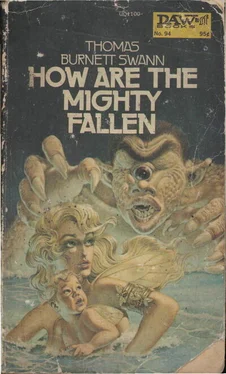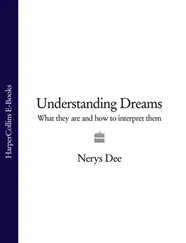Thomas Swann - How are the Mighty fallen
Здесь есть возможность читать онлайн «Thomas Swann - How are the Mighty fallen» весь текст электронной книги совершенно бесплатно (целиком полную версию без сокращений). В некоторых случаях можно слушать аудио, скачать через торрент в формате fb2 и присутствует краткое содержание. Жанр: Фэнтези, на английском языке. Описание произведения, (предисловие) а так же отзывы посетителей доступны на портале библиотеки ЛибКат.
- Название:How are the Mighty fallen
- Автор:
- Жанр:
- Год:неизвестен
- ISBN:нет данных
- Рейтинг книги:4 / 5. Голосов: 1
-
Избранное:Добавить в избранное
- Отзывы:
-
Ваша оценка:
- 80
- 1
- 2
- 3
- 4
- 5
How are the Mighty fallen: краткое содержание, описание и аннотация
Предлагаем к чтению аннотацию, описание, краткое содержание или предисловие (зависит от того, что написал сам автор книги «How are the Mighty fallen»). Если вы не нашли необходимую информацию о книге — напишите в комментариях, мы постараемся отыскать её.
How are the Mighty fallen — читать онлайн бесплатно полную книгу (весь текст) целиком
Ниже представлен текст книги, разбитый по страницам. Система сохранения места последней прочитанной страницы, позволяет с удобством читать онлайн бесплатно книгу «How are the Mighty fallen», без необходимости каждый раз заново искать на чём Вы остановились. Поставьте закладку, и сможете в любой момент перейти на страницу, на которой закончили чтение.
Интервал:
Закладка:
Ahinoam took his face between her hands and kissed him on the mouth.
“If I were a man, I would fight at your side,” she said. “Bring back my husband’s body. He loved the earth-seedtime, harvest, and haying-and therefore I loved him, though he was called to the wars against his will and finally came to like them.” (She did not reproach him for Rizpah.) “Bring back my sons to me, and the son whom I loved the best. Once, when you fought Goliath, I hurled green magic against him. I have no magic to send with you now-except my love of the Lady.”
“I will do as you say,” said David, loving her because she was a great queen who made a splendor of exile and an exaltation of grief; because, like the simplest farmer’s wife, she must suffer the loss of her husband and sons; and because she was Jonathan’s mother. To look at her you would have thought that she had slept on eiderdown and stepped, fragrant and glistening, from her bath. Honey Hair! But David had passed beyond desire or awe; to him she was his second friend.
– Distances were short, even if difficult and often pathless, in Israel. It was a single day’s walk to Beth-Shan. But the Philistines had overrun the countryside like a plague of flies. No one questioned David and his men. Except for David, they were shorter and shaggier than most Philistines, their features were aquiline, their skin and hair dark. They were farmers and herdsmen who worked in the fields by day and returned to their huts in Jabesh-Gilead only at night; they were not of the sea or the city. But some of the Israelites had fought for Philistia as mercenaries; such seemed David and his men, and no one attempted to question them. David, already brown of hair, smeared his tunic with dirt and blood like a veteran of Gilboa and hid his face with a hood.
Beth-Shan was enkindled with torches and riotous with merrymakers. The garrison was small; the priests more numerous than soldiers. It was a sacred town, a town of temples to Dagon and Ashtoreth, and no enemy had presumed to attack its low and indefensible walls, not even the Israelites, who, though they execrated Dagon even above Baal, secretly honored the Lady.
No one questioned them as they entered the gate, between the two stone images, one of fish-tailed Dagon with the face and arms of a man, the other of Ashtoreth cradling fruit in her arms.
They followed the revelers to the temple of Dagon. The Israelites did not build temples to Yahweh-they worshipped him at an altar of clumsily piled stones or under the spreading limbs of a sacred tree. Philistine temples were foreign to them. Red, swelling columns, blue walls, flat roofs covered with decorative tiles… porticoes and altars of chiseled green marble… courtyards where maidens danced the slow, shuffling Dance of the Crane… priests with shaven heads, the young in loincloths, the old in robes which reached to their ankles: these were the echoes of Crete which honored the fish-tailed god.
The body of Saul had been nailed to the wall by his hands, and his severed head had been raised on a stake at his feet. His younger sons by Ahinoam, Ahinidab and Machishua, also slain in the battle, hung beside him. Only Jonathan was not with them; the Philistines had respected him even in death; they doubtless knew that he was not Saul’s son; they did not wish or perhaps they feared to dismember a Siren’s son. They had bound him by leather straps to a column of Ashtoreth’s temple. Except for the blood on his face, he was as white as the salt flats around the Dead Sea, and sad in sleep, as if he were haunted by dreams. But death, like a lover, had left him beautiful.
Philistine soldiers were hurling clods of earth at the head of Saul. His features were blurred beyond recognition. The eyes were gone, the gray hair was clotted with blood.
They were making sport of him with words as well as blows. The Philistines taught their children by questions and answers known as Wisdoms. It was a form which they could raise to an art or lower to a curse.
“Where is your crown, oh king of Israel who would drive us into the sea? Where are the shepherds who sleep beneath the sky and wield their staves instead of their swords?”
“On Gilboa,” the answer rang. “Ask the vultures to show you the way.”
“Where is Rizpah, harlot of Israel?”
“Seek her in chains beside the unchanging sea.
Hatred burned in David like the poison of wild gourds. It was not of the gods, whatever men said, this thing which drove them to fight and kill and exult. Or else it was Hate, and men should raise him a temple or heap him an altar of stones. David must fight him now or leap on the revelers backs as if they were a pride of lions. But reason restrained him, the weir which checked the turbulence of his nature. He remembered the similar cruelties of the Israelites. He had seen them conquer a town, massacre women along with men, children along with mothers.
“We will wait now,” he said. “The Philistines will soon exhaust themselves and sleep. Let us pretend to join them. Sing and dance and reel in the streets, and pretend to hurl clay at our king. But drink neither wine nor beer. Our time will come.”
The Lady Moon descended the heavens, slowly, slowly, as if she wished to illumine the merrymaking (she was much honored by the Philistines, who mistook her for Ashtoreth; but the Goddess would close her eyes upon such a sight). The cries of merriment dwindled to a low, murmurous titter, then into such a silence as follows a battle, whether defeat or victory. Men fell asleep in their tracks and slid to the earth, friend leaned against friend. Mongrels, a cat, a goat prowled through the streets in search of food but kept their distance from the sleeping men.
“Now,” said David. ‘
The bodies were strangely light; Saul seemed an ancient scarecrow, the sons beside him like little children. They had lost much blood. There was an odor of death about them, like the damp and decay in a cellar of moldering bones. Except Jonathan. The wild grasses of Gilboa had cloaked him in a green fragrance. With infinite tenderness, without the help of his friends, David lowered his body to the ground. (No one shall touch him but me. No one shall be his blanket against the cold.)
They borrowed robes from the sleepers to hide the bodies. Nobody stopped them as they left the town. A drowsy guard at the gate nodded good night.
“Too much beer?” he mumbled, pointing to the shrouded bodies.
“Yes, that and the battle.
“They’ll be drinking beer from Gaza to Bethlehem tomorrow!” he chortled.
In a forest beyond Beth-Shan, they threaded litters of willow wands and carried their burden for most of the night.
“Stop here and rest,” said David in a grove of palms and tamarisks, beside a well with crumbling walls and an old copper bucket on a rusted chain. The men dipped water and drank and stretched wearily on their robes and slept the sleep of the dead. The water was clean and cold. The wind made lyre notes in the swaying fronds.
David leaned his back against a tree, unable to sleep, with Jonathan’s head in his lap. Like most of his people, he had no fear of death; he had fought too many battles. It did not even seem to him that Jonathan was dead.
“Little brother,” he said. “You were older than I. You taught me how to fight. But I grew taller than you in the wilderness, and at the last it was I you needed to shield you from the giant. I should have taken the arrow in my breast.”
And David sang:
“The beauty of Israel is slain upon thy high places:
How are the mighty fallen!
Tell it not in Gath,
Publish it not in the streets of Askelon;
Lest the daughters of the Philistines rejoice,
Lest the daughters of the uncircumcised triumph.
Ye mountains of Gilboa, let there be no dew,
Читать дальшеИнтервал:
Закладка:
Похожие книги на «How are the Mighty fallen»
Представляем Вашему вниманию похожие книги на «How are the Mighty fallen» списком для выбора. Мы отобрали схожую по названию и смыслу литературу в надежде предоставить читателям больше вариантов отыскать новые, интересные, ещё непрочитанные произведения.
Обсуждение, отзывы о книге «How are the Mighty fallen» и просто собственные мнения читателей. Оставьте ваши комментарии, напишите, что Вы думаете о произведении, его смысле или главных героях. Укажите что конкретно понравилось, а что нет, и почему Вы так считаете.












